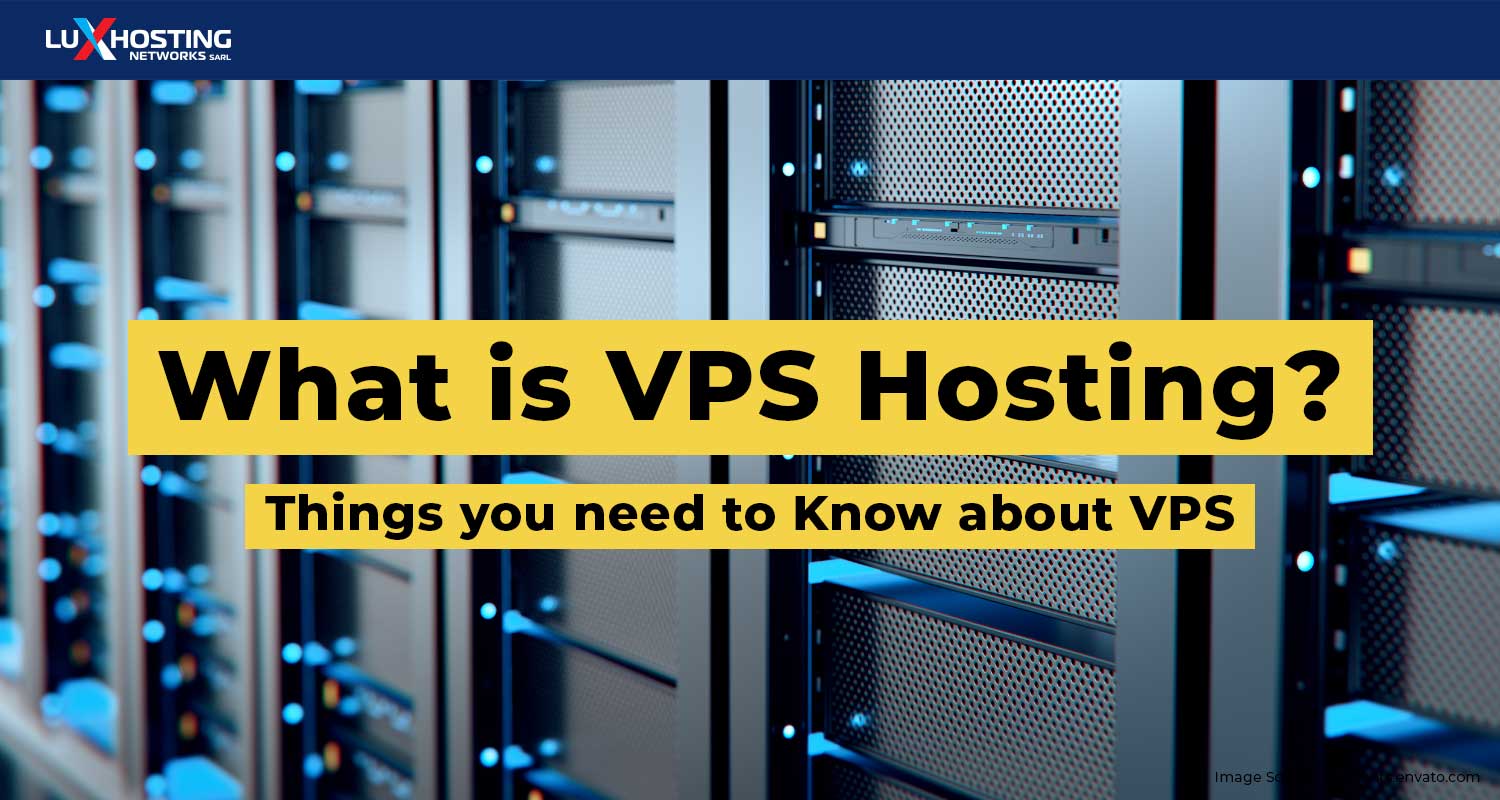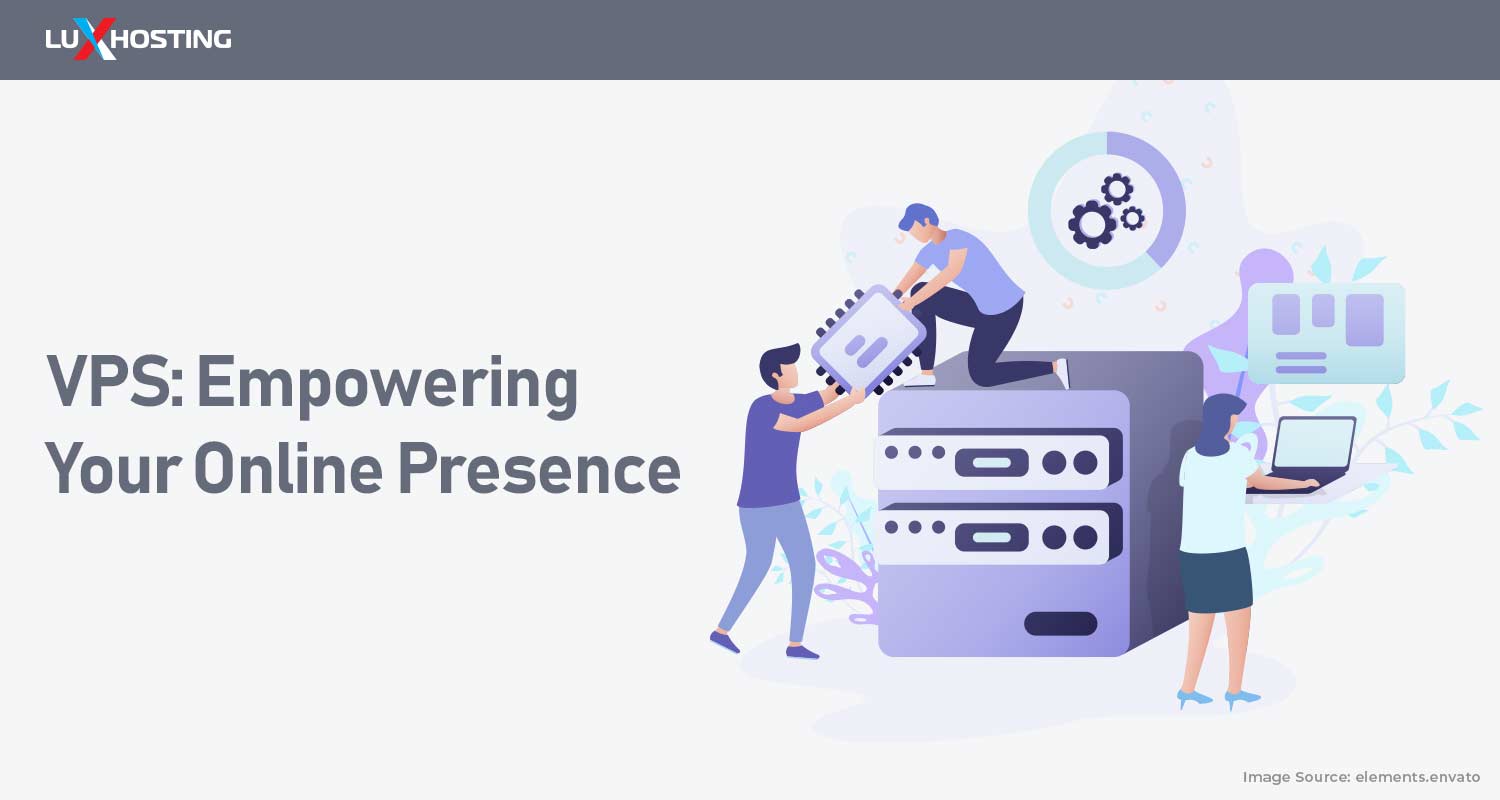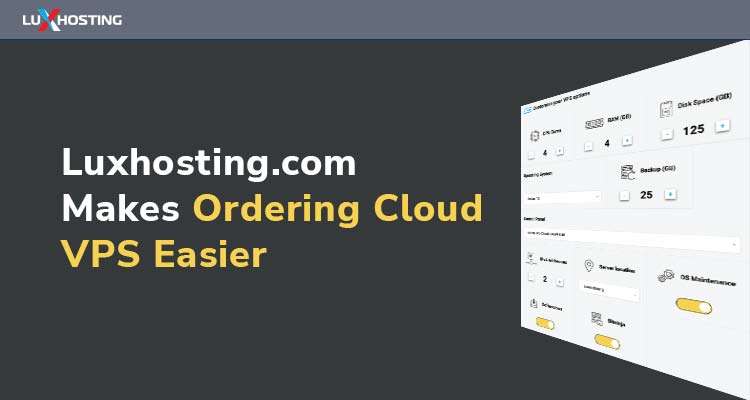Shared hosting is fine when you’re just starting out. But if your website has been loading slowly ever since you started attracting more visitors, it may be time to upgrade to a VPS hosting plan. In this guide, you’ll learn five things you need to know about VPS hosting:
- What is VPS hosting?
- Types of VPS hosting
- What is VPS hosting good for?
- Who is VPS hosting not for?
- How to choose a good VPS hosting provider Let’s get right into it!
5 things you need to know about VPS
1. What is VPS hosting?
[caption id="attachment_9882" align="alignleft" width="600"] Image source: elements.envato.com[/caption] VPS hosting stands for Virtual Private Server hosting. With shared hosting, all the websites on a server share the server’s resources. But the bigger your website gets, the more server resources it needs. That’s why bigger websites usually run more slowly on a shared server: The constant competition for resources makes the website less efficient. With VPS hosting, each website gets its own private space on the server. That’s because VPS hosting uses virtualization technology to separate the server into different partitions so that each website gets its own share of server resources. This makes VPS hosting faster, more secure, and more private! See a full definition for VPS here.
Image source: elements.envato.com[/caption] VPS hosting stands for Virtual Private Server hosting. With shared hosting, all the websites on a server share the server’s resources. But the bigger your website gets, the more server resources it needs. That’s why bigger websites usually run more slowly on a shared server: The constant competition for resources makes the website less efficient. With VPS hosting, each website gets its own private space on the server. That’s because VPS hosting uses virtualization technology to separate the server into different partitions so that each website gets its own share of server resources. This makes VPS hosting faster, more secure, and more private! See a full definition for VPS here.
2. Types of VPS hosting
The two main types of VPS hosting are managed VPS hosting and unmanaged VPS hosting:What is VPS hosting (managed)? With managed VPS hosting, you don’t need to worry about managing or maintaining your own server. Your web hosting company will do that for you. This means you don’t have to think about any of these:
- Malware protection
- Server monitoring
- Technical support
- DDoS protection
- System and software upgrades
Managed VPS hosting is great for smaller companies and for people who don’t have the technical skills to manage their own server.
What is VPS hosting (unmanaged)? With unmanaged VPS hosting, important server management tasks are your responsibility, instead of your web hosting company’s. (That’s why unmanaged VPS hosting plans are usually less expensive than managed hosting plans.) Unmanaged VPS hosting isn’t for everyone. If you don’t have these technical skills, you’ll end up spending even more money on technical staff:
- Secure Shell (SSH)
- Linux Command Line Interface
- Web server software management
- Disaster recovery
3. What is VPS hosting good for?
If any of these apply to you, VPS hosting might be for you:A. You’ve been having performance issues on your shared server Shared hosting is perfect for newer, smaller websites that don’t get much traffic. But if your expanding website has suddenly started experiencing performance issues, it might be time to get VPS hosting.B. You want to monetise your hosting Want to make money from web hosting? [caption id="" align="aligncenter" width="400"] Source: Giphy[/caption] Here’s how it works: When you buy a VPS hosting package, you can rent server space from us, then resell that server space to your own customers. Then you can manage the hosting for your clients from your control panel. It’s that easy! (It you’re looking for white-label hosting plans, then reseller might be for you. Go here to learn more about how to use white label reseller hosting to make money!)C. You need more secure web hosting than you can get with shared hosting If your website handles sensitive material like medical information or credit card data, you might want to invest in VPS hosting or dedicated server hosting. If this is your first website or if your company doesn’t have the budget for dedicated hosting, we recommend VPS hosting, which offers the same level of security at a much lower cost. VPS hosting is much more secure than shared hosting, and if you want to amp up your security even more, there’s even a VPS security checklist you can follow! VPS hosting is great, but there are times when it isn’t the right choice.
Source: Giphy[/caption] Here’s how it works: When you buy a VPS hosting package, you can rent server space from us, then resell that server space to your own customers. Then you can manage the hosting for your clients from your control panel. It’s that easy! (It you’re looking for white-label hosting plans, then reseller might be for you. Go here to learn more about how to use white label reseller hosting to make money!)C. You need more secure web hosting than you can get with shared hosting If your website handles sensitive material like medical information or credit card data, you might want to invest in VPS hosting or dedicated server hosting. If this is your first website or if your company doesn’t have the budget for dedicated hosting, we recommend VPS hosting, which offers the same level of security at a much lower cost. VPS hosting is much more secure than shared hosting, and if you want to amp up your security even more, there’s even a VPS security checklist you can follow! VPS hosting is great, but there are times when it isn’t the right choice.
4. Who is VPS hosting not for?
If any of these apply to you, you might want to rethink getting VPS hosting:You don’t have the budget for VPS hosting VPS hosting packages are affordable, but if you don’t have the budget for it, we’d never recommend that you break the bank on web hosting. Keep using your shared hosting until you can afford to upgrade.You have a new website that doesn’t handle sensitive information VPS hosting is a great choice for websites that have been around for a while. It’s very rare that new websites will use enough server resources or face enough security threats to justify getting VPS hosting right out the gate. So, if this is your first website and it’s not a company website, nor will you be collecting sensitive information from your visitors, start with shared hosting.People who need dedicated hosting Dedicated servers offer more storage and more security than a VPS, but because they’re a premium hosting option, they’re also the most expensive form of hosting you can get for your website. That said, if dedicated hosting is what you need, don’t try to cut corners by getting VPS hosting. If your website is a streaming website or a massive website that gobbles up bandwidth, you need dedicated hosting – not VPS hosting.
5. How to choose a good VPS hosting provider
To choose a good VPS hosting provider, look for these qualities:
- 24/7 customer support
- Optional cPanel
- A variety of hosting packages to suit your needs
- SSD for ultra-fast data and file transfer
- Softaculous 1-click app installer
- Free migration
- White label hosting
Wrapping up
VPS hosting is a great choice for you if your website needs more storage and security than you could possibly get with a shared server. We hope this guide helped you figure out whether VPS hosting is right for you!



